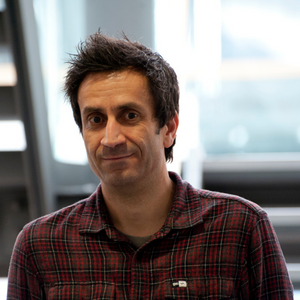Published in the journal Cancer Cell today, Professor Chris Jones and his team aimed to uncover clues about how diffuse hemispheric glioma cells behave and found a key weakness in the cells that could be targeted by a drug that already exists – a drug called ribociclib.
Diffuse hemispheric glioma
The research focussed on a type of diffuse hemispheric glioma with a specific DNA mutation, known as H3G34-mutant. Researchers found that this genetic mutation made the tumour cells more responsive to certain treatment compared to other high-grade gliomas – opening the door for more targeted treatments for this genetically distinct tumour type.
It is estimated that more than 30% of all paediatric high-grade glioma diagnoses are diffuse hemispheric gliomas with the H3G34 mutation.
What is ribociclib?
Ribociclib is a drug already used to treat certain types of breast cancer. It is known as a cancer growth blocker and works by blocking signals that tell cells to divide and grow.
It specifically targets proteins called CDK4 and CDK6. These proteins are important in cell division. But their abnormal activity can lead to uncontrolled cell division – a hallmark of cancer.
Blocking them with a drug like ribociclib helps to slow down or stop the cells from growing and dividing. This helps to control cancer growth.
Why ribociclib?
The research, led by Professor Chris Jones at The Institute of Cancer Research (ICR) in London and Dr Mariella Filbin at the Dana-Farber Cancer Institute in the USA, found that tumour cells disrupt the normal development of neurons in the brain, causing them to look like immature early neuron-like cells.
This led the researchers to explore weaknesses in these cells that could potentially pave the way for new drugs to target the tumour cells.
They found that targeting CDK6 could prove promising.
As ribociclib is a CDK4/CDK6 inhibitor already used to treat cancer, the researchers tested this drug for its ability to block growth of diffuse hemispheric glioma cells.
What did the research involve?
As with all research, initially the work started in laboratory and pre-clinical models. This is where researchers test theories and drugs before they move to testing them in patients. This early research is fundamental to collecting enough data to support further tests and clinical trials in patients.
After pre-clinical testing, this research moved to trialling ribociclib in a child diagnosed with a H3G34-mutant diffuse hemispheric glioma after other treatments had failed. These are very early results as they have only been tested in one child, but the results for the child were remarkable.
Treatment with ribociclib resulted in stable disease for a further 17 months after first- and second-line treatment had failed. The child’s tumour has since grown back and they are receiving further treatment, more than four years since their diagnosis.
Diffuse hemispheric gliomas typically have a prognosis of 18-22 months because they are high-grade and have no standard of care. The tumour typically starts growing back 3.5 months after treatment, so 17 months following ribociclib treatment is promising.
From this research, we know that ribociclib isn’t a cure for this devastating brain tumour because it slows the growth of tumour cells and doesn’t kill them. But it could pave the way for future drug combinations to be explored in clinical trials.

This work shows the importance of understanding how brain tumours develop in order to figure out better ways to treat these patients. It was a surprise to realise that this type of glioma seemed to arise from developing neurons, but we were able to use this knowledge to find specific vulnerabilities in these cancer cells, which hopefully we can now translate into clinical trials.”
Professor Chris Jones
What’s next for this research?
To determine how effective ribociclib is, it would need to be tested as part of a clinical trial to assess its true impact in a clinical setting.
Drugs need to be tested in potentially hundreds of patients to understand how safe and effective they are. Data from one child and pre-clinical models is a starting point towards building enough data for a clinical trial.

This research helps us have a better understanding of what is driving this devastating disease in children. We know that current treatments are not effective and that finding vulnerabilities in cancer cells could lead to new targeted treatments to help children live longer and better lives. Although this is very early days, we hope that it will provide some data to inform clinical trials in the future.”
Dr Simon Newman, Chief Scientific Officer at The Brain Tumour Charity
This work was funded in part by one of our Family Led Partners, The Billie Butterfly Fund in memory of Billie Bainbridge. You can read more about our Family Led Partnerships here: https://www.thebraintumourcharity.org/about-us/our-research-strategy/our-partnerships/
Find out more about Chris’ research
Professor Chris Jones
Professor Jones is the Group Leader of the Glioma Team at The Institute of Cancer Research in London. His research focuses on understanding the biology of high-grade children’s tumours and using that knowledge to test targeted treatments.

